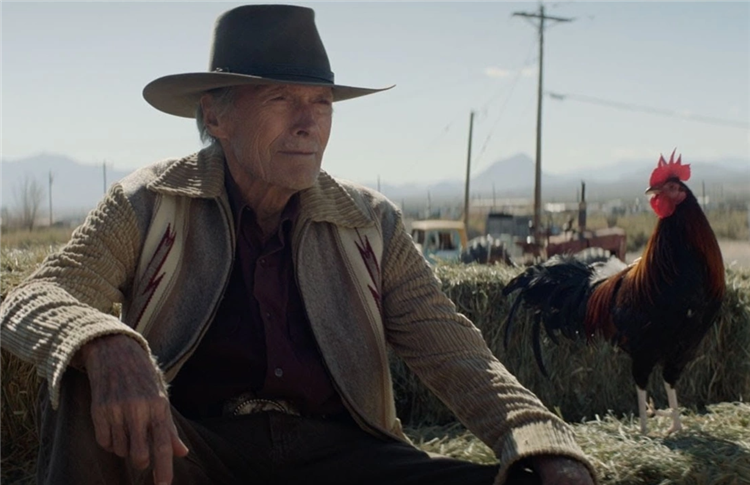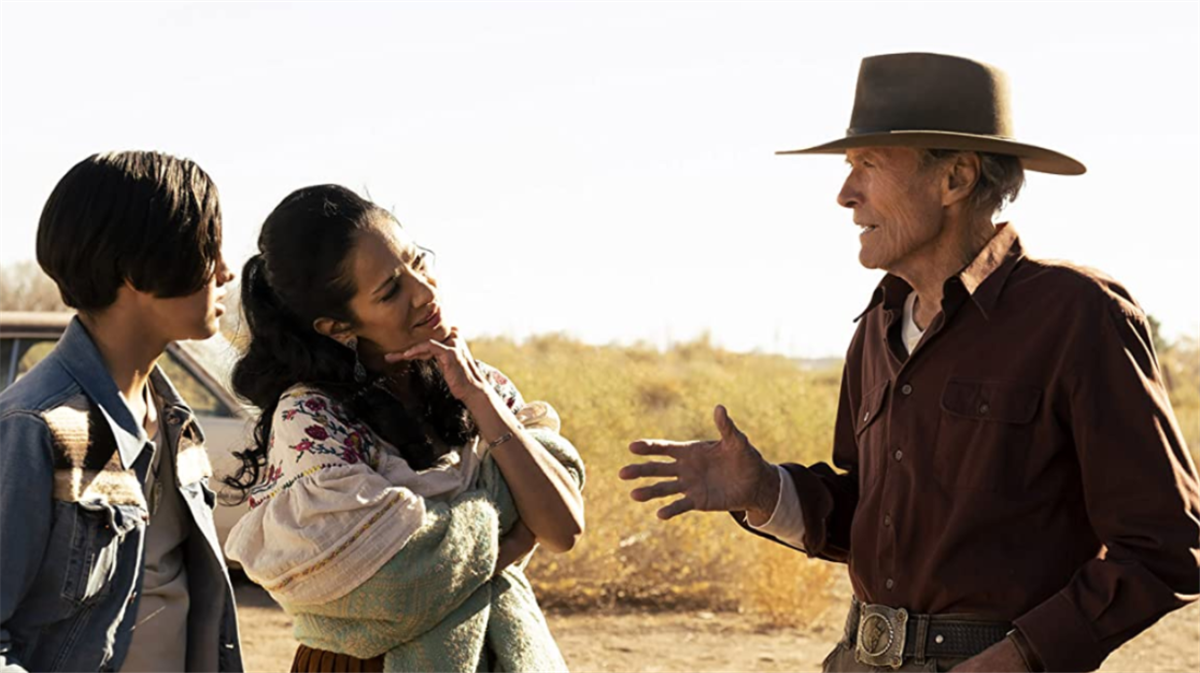I love Clint Eastwood’s films, which is why it gives me no joy to tell you the latest directorial and acting effort from the John Huston of my generation isn’t one of his better works.
“Cry Macho” casts Eastwood as Mike Milo, a former rodeo star who is near the end of his life (a striking flashback tells us why Milo no longer does rodeos). Howard, Milo’s old friend (Dwight Yoakum), asks him to go to Mexico, find his estranged teenage son and bring him to Texas.
Milo takes the assignment, as he’s obligated to perform a favor for Howard, who has never met his son, Rafa, played by Eduardo Minett. There’s also the matter of Rafa’s rooster, a fighter named Macho who joins them on their journey.
The premise is forced – surely Howard could have asked someone younger and quicker on their feet to undertake this dangerous and unpredictable assignment? Milo is a cowboy but he’s also a geriatric – Eastwood played this angle of an old man surrounded by dangerous criminals well in “The Mule” but the suspense comes and goes here.
This was reportedly being tailored as an Arnold Schwarzenegger vehicle a decade ago, which reflects on the lack of freshness to the project.
Not helping matters is that Minett is just okay; the supporting characters describe Rafa as a restless youth gone wild and Minett’s performance never suggests this. The chemistry between Minett and Eastwood is faint, though the former Man with No Name is first rate here, making his age, iconic presence and vulnerability in the role and in real life work for him.

“Cry Macho’s” premise, of an old American warrior who must go to Mexico to rescue a young person from the criminal element is oddly similar to “Rambo: Last Blood” (2019). In fact, that Stallone vehicle did all of this better, though it wallowed in cliches as much as this film does.
The supporting performances here are almost (but not quite) strong enough to overcome the dusty and sometimes ugly stereotypes of the characters. It seems Mike is the only good man in Mexico, as everyone he encounters is some kind of monster.
Had Eastwood kept this lean and tense, which was the case of the 6th “Rambo,” it could have gotten by as a B-movie fantasy. Instead, after an involving start, “Cry Macho” has a meandering mid-section that majorly settles down.
How so? Mike takes a nap at one point and the movie actually fades out with him!
Some will enjoy how laid back and gentle this gets but this is Eastwood-lite. To think of how strong his “A Perfect World” (1993) is (which is also about a man and a small boy on the run) and to compare it with this polished but unmemorable effort.
When Eastwood leans in on the neo-western angle, there are visual pleasures, like the silhouette of Mike resting against a prairie or the absurd but wonderful shot of Mike, Rafa and Macho all walking down a dirt road together.
Around the time Mike falls for a Spanish-speaking waitress, I wondered if the film would ever return to the grit of its establishing scenes, get off its keister and finally get back in the action. The third act develops in a manner I found unexciting and, overall, unmoving.
Eastwood is capable of so much more than this. There’s a cheeky semi-reference to his “The Mule” (2018), where a couple of cops search Mike’s car for drugs and he incredulously asks, “Are you kidding?”

“The Mule” is hardly Eastwood’s crowning achievement, but there’s both a quirkiness and an unceasing tension to it. I’d say the same of “Sully” (2016), “Mystic River” (2003) and “Hereafter” (2010), as well as career milestones like “Play Misty For Me” (1971), “Unforgiven,” “A Perfect World” (1993), “Letter from Iwo Jima” (2006) and “American Sniper” (2014).
I could care less how controversial Eastwood is to those who dislike his politics and I’d even stump for some of his more problematic movies. Eastwood is 91-years old, still takes risks as a filmmaker and, just as important, still has a fire in his belly.
No, he was not the right guy for “Jersey Boys” (2014) or “J. Edgar” (2011) and his “The 15:17 to Paris” (2018) was a conceptual misstep, but I applaud him for trying. On the other hand, he made films about “Sully” Sullenberger, Chris Kyle, Richard Jewell and Nelson Mandela that are passionate and display some of his best work ever as a director. He’s still got it.
When Eastwood excels as a filmmaker, it’s when he’s working outside of his comfort zone. This is probably why “Cry Macho” has the sheen of his filmmaking but none of the snap.
I blame the screenplay, which isn’t just sentimental but downright maudlin. Elements of “Gran Torino” and “The Mule” surface, as well as leftover bits from “A Perfect World,” “Bronco Billy” and even “The Gauntlet” (1977).
While not a near-catastrophe like his Frankie Valli musical, I’d rate this somewhere between “Blood Work” (2002) and the hokum of “Pink Cadillac” (1989). At least there’s no Clyde the Orangutan…though we do get Macho the Rooster stealing scenes from Eastwood.
